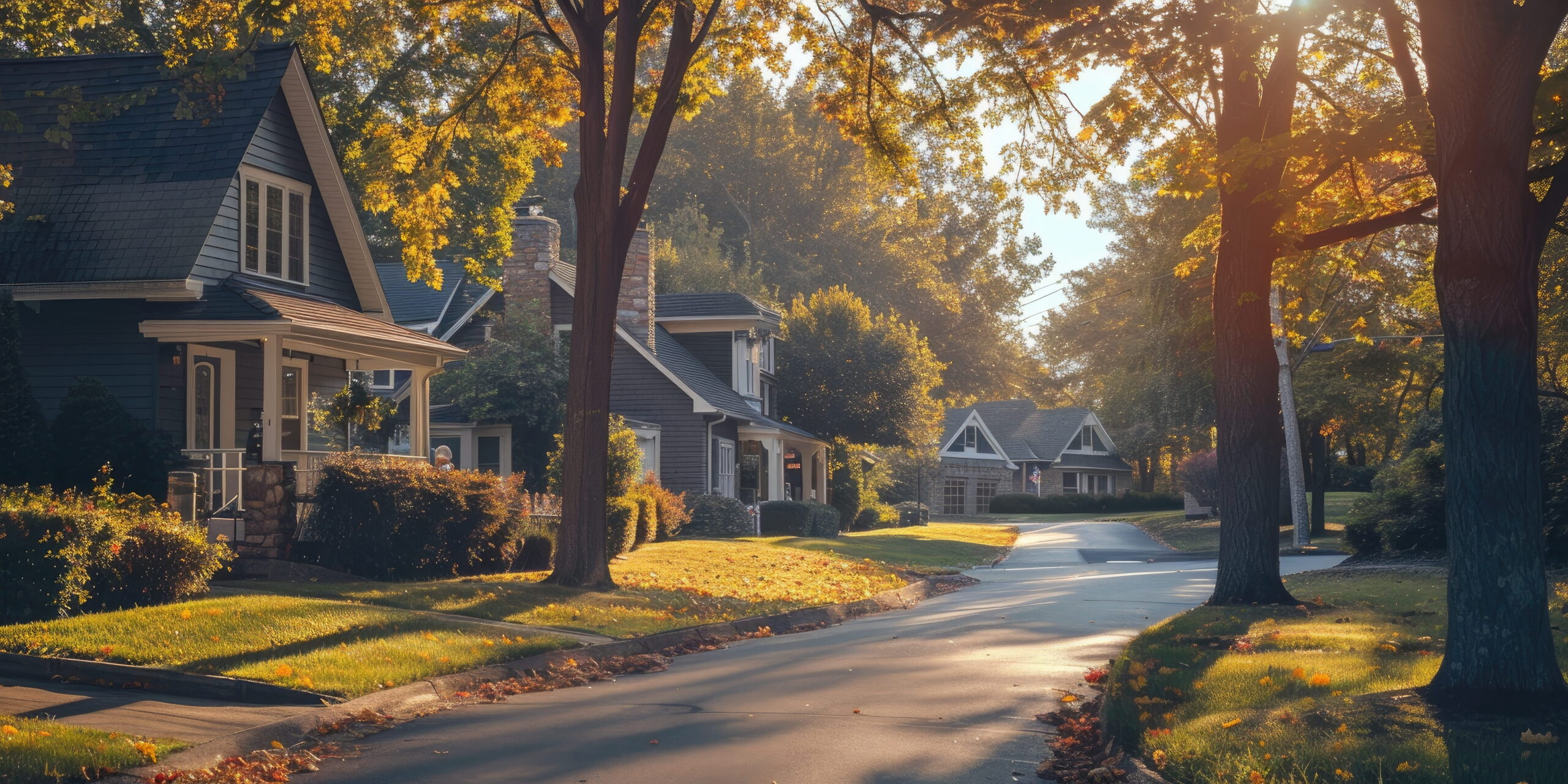Let’s face it: when you think of moving to a new home, most people don’t envision doing so in the winter. They picture warm, sunny days spent browsing home listings, attending showings, and packing up boxes. After all, real estate is seasonal, and spring is so often talked about as the peak real estate season (for a good reason!).
But the reality is that not everyone can (or wants to) wait until the spring and summer to buy or sell. Which begs the question: Is it a good idea to buy or sell a home during the winter? Even more importantly, what should you expect if you need to make a home sale or purchase during this time of year?
The temperature outside isn’t the only difference between the winter and spring market. Here’s a few tips on navigating the unique market conditions during the winter and how to use them to your advantage.
1. Consider waiting until after the holidays if you can.
Buyers
The holidays are a busy time of year. If possible, avoid adding to the holiday season stress by waiting to start your home search until the festivities slow down. Many sellers put their listing plans on hold until after the new year, so your options in the market will likely increase at that time, too.
Sellers
Buyers are often distracted during this time of year with holidays: shopping, family gatherings, and traveling out of town. As a seller, if you are able to hold off until the first of the year, it can make all the difference in the world in your transaction. Waiting a few short weeks until after the holiday frenzy to list your home could get you a better offer and earn you more money for your sale.
2. Prepare for lower inventory.
Buyers
Lower inventory is an essential truth of the winter real estate market. As a buyer, it helps to go into the process with realistic expectations about your options and the number of homes you’ll find on the market. But don’t let this discourage you; it’s still possible to find your dream home! It just may require a bit more patience or a willingness to invest some sweat equity to make a home your own.
Sellers
As a seller, the slower market can work in your favor. With fewer homes for sale, it’s easier for your home to stand out amongst other listings. While the competition is lower, however, the demand may be, too. This makes it even more important to ensure your home’s first—and well, every—impression is a good one to attract the perfect buyer.
3. Take advantage of the less competitive market.
Buyers
Winter is the least common time for a move, with only 16% of all moves in the United States taking place during this time of year. When someone does move in the winter, it’s often because of a significant life change such as a job transfer, career change, or family matter. This means the seller is usually on a more strict timeline than, say, someone wanting to upsize or downsize. Because of this, winter sellers tend to be more motivated and more willing to negotiate.
However, that doesn’t mean that it’s safe to assume sellers are willing to accept a lower offer. Work with your Urban Acres agent to determine how your situation and the seller’s circumstances impact your offer.
While there may be fewer homes on the market, the upside is that there are also fewer buyers. As we noted above, many potential buyers are inclined to wait for the warmer weather of the spring market. That means that as a buyer, you’re likely facing less competition for the homes that are available, which means less of a chance of encountering a bidding war—another plus.
Sellers
On the seller side, your advantage lies in the fact that buyers have fewer options. It’s still a good idea to set reasonable expectations about the offers you’ll receive, though. Competitive markets drive bidding wars and in turn, higher offers. Less competitive markets lack that edge. Just as you would any other time of year, work with your agent to negotiate the best offer based on market conditions and the circumstances of your sale.
4. Pay attention to seasonal price reductions.
Buyers
This is a huge check in the “pros of buying in the winter” column! Across the nation, December, January, and February are the cheapest time of year to buy a home. In the Iowa City area, for example, the average sale price in December of 2020 was $254,765. In May 2020, the average sale price increased to $268,069, and in August 2020, the average sale price was $272,585.
These numbers show when the market becomes busier and the temperatures rise, sale prices usually follow. According to the National Association of REALTORS®, home prices typically increase by 3 percent in February and March as the spring season begins in earnest. All of this boils down to savings for winter buyers. Purchasing a home in the off season when prices are lower could mean a few hundred or even a few thousand dollars in savings.
Sellers
Again, the winter real estate market is all about realistic expectations. Home prices historically take a slight dip during the colder months, especially in climates like the Midwest where winter weather changes are more drastic. While this change differs from year to year and home to home, it doesn’t spell doom for sellers. Consult your agent to ensure you are setting a proper price that reflects the season and the current market conditions. Your expert Urban Acres agent will help you determine an appropriate listing price and navigate offers to ensure you get the best deal.
5. Make your home cozy inside and out.
Buyers
This time of year, sellers will often be playing up the warm and cozy aspects of their home—the fireplace or the recently-upgraded furnace, for example. While it’s important to pay attention to these things, don’t neglect the other heating and cooling aspects of the home—such as the age and condition of the AC system—when evaluating the home.
It’s also a good idea to pay attention to where it’s not so cozy during showings. Is one room especially cold? Can you feel the chill seeping in from the windows, or underneath the doors? This could be a sign of poor insulation, drafty windows, and less-than-perfect sealing.
Sellers
It’s always a good idea to make your home as inviting as possible for a showing, and this is especially easy to do in the winter! Whether it’s electric, gas, or wood-burning, fire up your fireplace for showings to create a warm, cozy atmosphere. Nothing says homey like a crackling fire!
Lighting goes a long way to make a home appear welcoming, too. A tasteful strand of porch lights and decorative lanterns for your front step or walkway can help create that warm glow to attract buyers. And don’t forget to turn on your home’s outside lights for evening showings. While it adds to your exterior aesthetic, it also helps buyers get a good look at the outside of your home, especially since winter nights mean it’s dark very early!
Check out our winter curb appeal blog for tips on how to make your home’s exterior look appealing to buyers.
6. Look past (or take down) the holiday decor.
Buyers
Make a conscious effort to look past the holiday decor and envision what the home will look like in other seasons. This can be difficult, especially if the snow and decorations are heavy-handed, but it’s important to keep in mind that the home won’t always look like it does at the moment. Picture the living room sans-Christmas tree; envision the mantel without the stockings; consider the state of the roof under the snow; and imagine the trees with the full foliage of summer. You can even ask the seller for exterior photos of the home in the spring and summer!
Sellers
Consider de-holidaying your home before putting it on the market. Buyers want to envision the home as theirs inside and out, and it might be hard for them to see past your inflatable snowmen, plastic Santas, and dancing light projectors—both literally and figuratively. However, minimal decorations that aren’t overwhelming visually, such as a string of lights on the porch, can actually make your home seem more inviting and cozy.
Another thing to keep in mind is how your home will appear in listing photos. Holiday decor can make your listing photos look outdated if your home remains on the market after the holidays have passed. Avoid a potential January photo reshoot by making the interior of your home as non-seasonal as possible for your listing photos.
7. Don’t wait too long to start your home search or sale.
Buyers
The spring real estate market often begins weeks before the weather outside begins to truly feel like spring. In Iowa, that means late February to early March. If you want to avoid the frenzy and the influx of other buyers, consider starting your home search sooner—perhaps in January.
While the spring market brings more competition for buyers, it also brings more home options. If you’re not finding what you’re looking for on the market in the winter, you’ll likely have better luck in the spring.
No matter what, it’s always a good idea to reach out to your agent to start the process sooner rather than later. Now is a good time to begin establishing a relationship with an agent, sharing your “must-haves” and “nice-to-haves” for your new home. The more information you arm your agent with, the better they can narrow down the search, and the more fruitful your house hunt will be. It’s also a good time to get pre-approved for a loan, so you’re ready to roll financially once you find the home of your dreams. It’s never too early to start taking the first steps!
Sellers
Spring also means more competition for sellers. If you want to avoid the potential of your home being lost in the shuffle of the busy spring market, consider listing sooner in the season.
As always, talk to your agent—they can help determine when you should list your home to ensure you make the biggest splash on the market! Talking to an agent now means you could be ready to list your home right away when the busy season arrives, giving you an essential edge over your competition in the market.
The Winter Market Wrap Up
If we were to sum up this blog in five words or less, it would be “Talk to your agent!” Whether you’re buying or selling, your Urban Acres agent is your expert guide in navigating the unique conditions of the winter real estate market. They have years of experience under their belts and are ready to help you maximize your sale or purchase.
Ready to get started? Reach out to one of our 50+ agents today.





